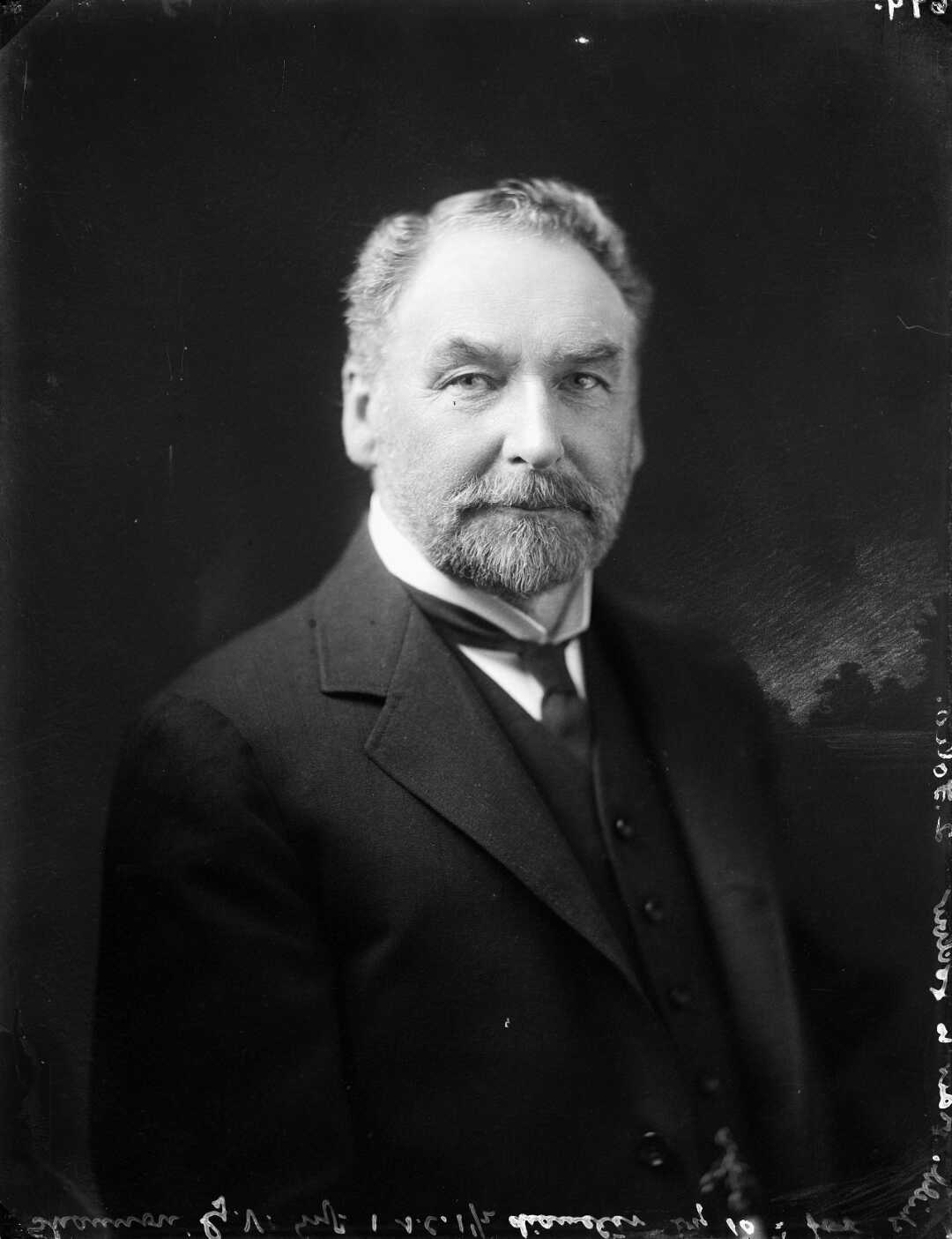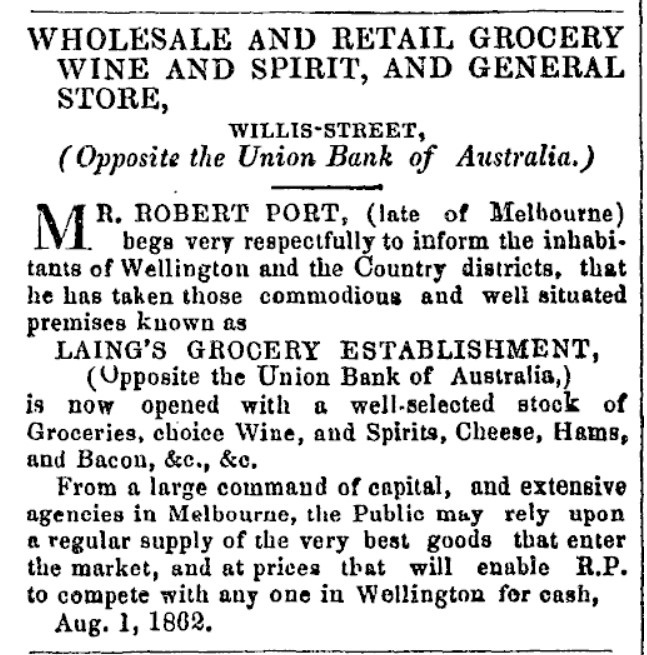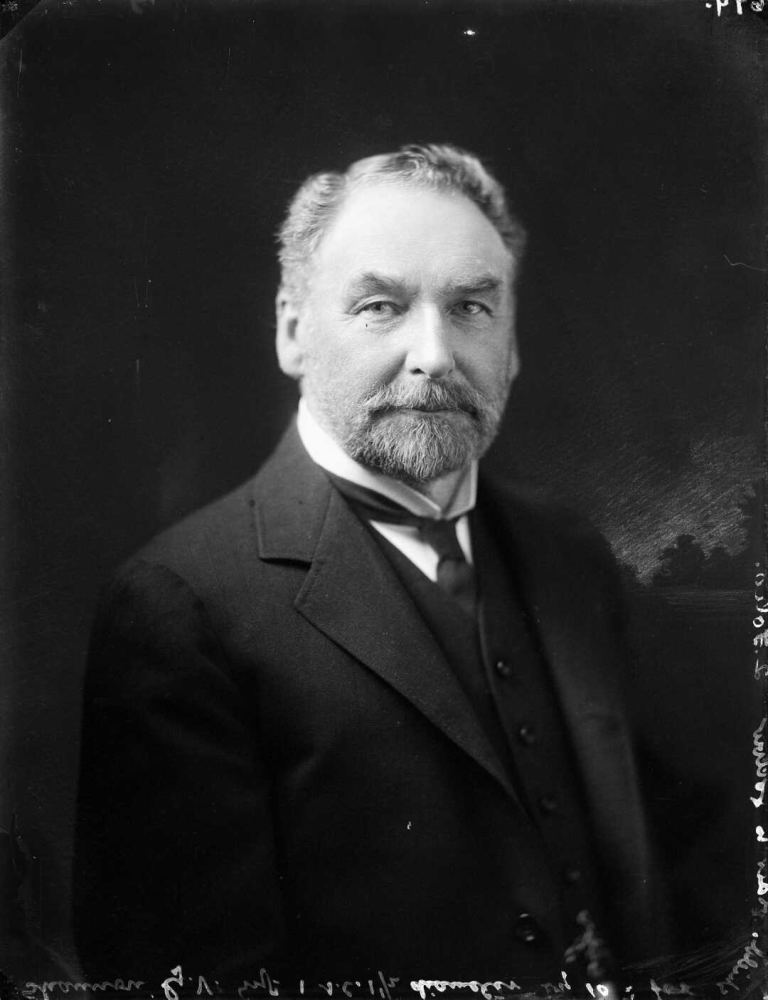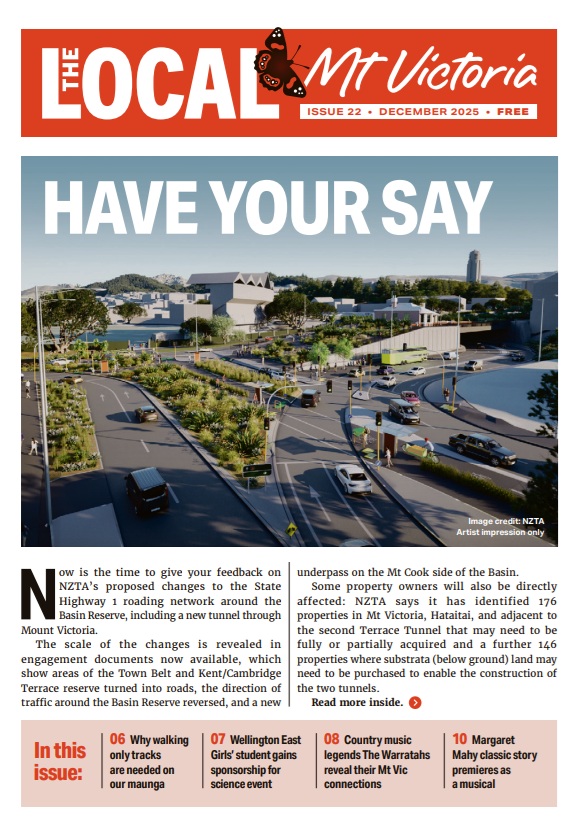
Many of our local street names derive from early Wellington retailers, as the Mt Victoria Historical Society’s Joanna Newman explains.
 It’s time for another in the series on the origin of our street names. We’ve already heard about businessmen, Lipman and Levy. Here are a few more early Wellington merchants, most of whom lived where the streets named after them are today.
It’s time for another in the series on the origin of our street names. We’ve already heard about businessmen, Lipman and Levy. Here are a few more early Wellington merchants, most of whom lived where the streets named after them are today.
Tutchen Avenue
The Tutchens ran a substantial dairy farm for town supply on land bounded on two sides by Brougham Street and Pirie Street. They started their operation in the early 1860s and, between them, members of the family owned seven town acres and leased two on the Town Belt from the Council. When what is now Porritt Avenue was created, it was named Tutchen Street, but today only tiny Tutchen Avenue off Porritt commemorates the days of dairying on Mt Victoria.
Rixon Grove
This small street is named after Robert Rixon, who owned land in Austin Street. He arrived in Wellington in the early 1840s and had a boot making business in Willis Street. He gave his name to Rixon Grove, which was granted as a right-of-way in 1898 and became a public street in 1924.

1. George Shannon, c1910 [Alexander Turnbull Library 1/1-014834-G]
Shannon Street
Could there be a connection between our Shannon Street and a small town in the Manawatū? Indeed. It was formed in 1878 when George Shannon bought land there. A few years earlier he had established, with a partner, a soft goods-importing and clothing-manufacturing business, which was the forerunner to the DIC department store. Shannon was one of the directors of the privately-owned Wellington-Manawatū Railway Company and hence his name was bestowed on a town on that line when the railway was completed in 1886.
Port Street
Port Street was formed by Council in 1881. It was named after Robert Port, who opened a wholesale and retail grocery wine & spirit and general store on Willis Street in 1862.
He became insolvent in 1879, as a result of land dealings and a stagnant
property market. Perhaps because of the stress of insolvency, he died in 1881 at only 58 but, as late as 1878,

Robert Port announces the opening of his business [Wellington Independent 30.8.1862]
he had been respected enough to be nominated to stand for municipal elections.
McIntyre Avenue
Charles McIntyre was a baker with premises in Tory Street, who bought land on Hawker Street in 1882. He, too, fell on troubled times and went bankrupt the following year. In a very convoluted history, however, the land stayed in the McIntyre family for many years.
And, so, the street names in our suburb reflect the lives of famous and ordinary early Wellingtonians, their achievements large and small, and even failures.
OTHER STORIES




